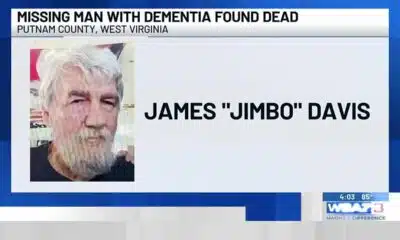News from the South - Florida News Feed
Trump administration sues Colorado and Denver for allegedly interfering in immigration enforcement
SUMMARY: The Department of Justice sued Colorado and Denver, accusing them of interfering with federal immigration enforcement. The lawsuit claims the state’s “sanctuary laws” violate the U.S. Constitution’s Supremacy Clause, alleging limited cooperation with Immigration and Customs Enforcement (ICE). The DOJ argues these policies enabled criminal gangs like Tren de Aragua to operate in Denver. While local officials dispute some claims, they acknowledge issues in certain areas. Colorado officials stated they cooperate with law enforcement but will abide by court rulings. The lawsuit is part of broader efforts by the Trump administration to challenge sanctuary policies in major cities.
The post Trump administration sues Colorado and Denver for allegedly interfering in immigration enforcement appeared first on www.clickorlando.com
News from the South - Florida News Feed
Market hopes to sell winning Powerball ticket as jackpot hits $1.4 billion
SUMMARY: The Powerball jackpot has soared to $1.4 billion, marking the fourth largest drawing ever. A local Tampa Bay store, known for selling a winning $50 million ticket in 2013, is hopeful history will repeat itself. The store experiences a surge in customers and ticket sales whenever jackpots climb high. Although the 2013 winning ticket went unclaimed, the staff remain optimistic about selling another winning ticket. If the jackpot-winning ticket is sold there, the retailer could earn up to $100,000. Excitement and anticipation are high as players eagerly await Wednesday night’s drawing.
With the Powerball jackpot climbing to $1.4 billion, a Carrollwood convenience store known for past lottery wins is seeing a surge in hopeful customers.
News from the South - Florida News Feed
New tech helps Marion County recover millions from crypto scams
SUMMARY: An expectant mother in Marion County, Florida, was scammed in a cryptocurrency rental fraud but recovered her money thanks to the Marion County Sheriff’s Office. The family paid rent via crypto ATM for a home that was actually for sale, not rent. Detective Richard Truman used TRM Labs’ blockchain analysis tool to track the funds, which led to a Nigerian suspect running a money laundering exchange on Binance. The sheriff’s office returned the money shortly after the baby’s birth. Crypto-related cases and recoveries have surged locally, with $5.9 million recovered in 2025 so far. Residents are urged to be cautious and report suspicious offers.
Read the full article
The post New tech helps Marion County recover millions from crypto scams appeared first on www.clickorlando.com
News from the South - Florida News Feed
Pediatrician offers insight as FDA restricts COVID-19 vaccine eligibility
by Kyle Davidson, Florida Phoenix
September 3, 2025
At the end of August, the Food and Drug Administration approved updated vaccines for COVID-19. While previous versions of the vaccine were recommended to individuals 6 months of age and older, access to the FDA’s newly approved vaccines is limited to individuals 65 and older and individuals between the age of 5 and 64 with an underlying condition placing them at high risk for severe COVID-19.
With Secretary of Health and Human Services Robert F. Kennedy, a longtime anti-vaccine activist, taking control of the agency in February, the usual process for issuing guidance on the vaccine has been upended, leading to a split between leading health authorities, and a potential gap in vaccine availability for children, who are among the most at risk for severe illness, hospitalization, and complications from the disease.
“I really don’t fully understand it. I’ll be real honest with you, and I’m not sure most physicians who understand the data can make sense of it either, right? There doesn’t seem to be a good reason for restricting the vaccine to only those with underlying health conditions under the age of 65,” Dr. Molly O’Shea, a pediatrician and member of the teaching faculty for the residency program at the Children’s Hospital of Michigan told the Michigan Advance in a Tuesday interview.
For members of the medical community, suddenly shifting from widespread availability to dialing back access is not something that makes sense for the FDA, O’Shea said, as there has not been a shift in complications from the vaccines or issues with the vaccine’s effectiveness to drive that change.
Additionally, the Centers for Disease Control no longer recommends COVID-19 vaccination for children ranging from 6 months to 17 years of age.
However the American Academy of Pediatrics has offered its own guidance, recommending all children 6 to 23 months old receive the vaccine, and for children 2 to 18 years old at high risk, or whose parents desire to protect their children from the illness.
Vaccines are the safest and most effective way for our immune system to learn how to respond to a virus, O’Shea explained.
Additionally, having the vaccine as your baseline exposure to COVID-19 comes with some safety from complications from the illness including multi-inflammatory system response, Long COVID, and Postural Orthostatic Tachycardia Syndrome, O’Shea said.
“For all of those reasons, it matters for young children to have access to the vaccine while they’re still kind of freshly unaware that COVID exists,” O’Shea said.
Reducing access to the vaccine, O’Shea said, promotes a mindset for families — particularly families who were already somewhat less inclined towards vaccination — that the COVID-19 vaccine isn’t of value.
There’s also been a lot of conversation on how physicians and other healthcare providers can give permission for individuals who want to receive the vaccine outside of the current recommendations, also referred to as off-label use, either in office or through a pharmacy.
“I really think that’s a very nuanced and challenging issue, because in any other circumstance in which we’re writing something off label, for off-label use, it isn’t a scenario in which the data has not been assessed by the FDA,” O’Shea said.
Liability
O’Shea also pointed to liability concerns if a vaccine is prescribed for off-label use and a patient has an adverse reaction.
According to a publication from the American Academy of Pediatrics, clinicians prescribing the vaccine could have two layers of protection, stemming from malpractice insurance and the PREP Act, which provides broad immunity from state and federal liability.
However immunity under the PREP Act is not guaranteed, with the academy encouraging physicians to check their malpractice coverage to ensure COVID-19 vaccines are not excluded.
“The goal of this whole thing is to scare people out of giving vaccines,” O’Shea said.
When looking for a list of underlying conditions to qualify for the vaccine, O’Shea pointed to an article published in the New England Journal of Medicine, which lays out which conditions qualify, including conditions like asthma, diabetes, cerebrovascular disorder, chronic kidney disease, chronic lung disease, chronic liver disease, heart conditions, certain mental health disorders and more.
Asked for advice for parents who want to make sure their children are protected in light of the FDA’s restricted access to the COVID-19, O’Shea offered two recommendations.
The first, if parents are uncertain their otherwise healthy child will be able to receive the COVID vaccine, is to go to their local health department.
“[The health department has] made it clear that they’re not going to turn anybody away who wants to receive COVID vaccine. So that’s encouraging,” O’Shea said.
The second: “Please contact your legislators, both in the House and in the Senate,” O’Shea said. With Kennedy set to testify before the Senate Finance Committee on Sept. 4, O’Shea said the more legislators hear from real people, the better.
This story first appeared in the Michigan Advance, a member with the Phoenix in the nonprofit States Newsroom.
YOU MAKE OUR WORK POSSIBLE.
Florida Phoenix is part of States Newsroom, a nonprofit news network supported by grants and a coalition of donors as a 501c(3) public charity. Florida Phoenix maintains editorial independence. Contact Editor Michael Moline for questions: info@floridaphoenix.com.
The post Pediatrician offers insight as FDA restricts COVID-19 vaccine eligibility appeared first on floridaphoenix.com
Note: The following A.I. based commentary is not part of the original article, reproduced above, but is offered in the hopes that it will promote greater media literacy and critical thinking, by making any potential bias more visible to the reader –Staff Editor.
Political Bias Rating: Center-Left
The content presents a critical view of Robert F. Kennedy Jr.’s leadership at the Department of Health and Human Services, highlighting concerns from medical professionals about restricting COVID-19 vaccine access for children. It emphasizes the importance of vaccination and the potential risks of limiting availability, aligning with public health perspectives commonly supported by center-left viewpoints. The article also encourages civic engagement to influence policy, reflecting a progressive approach to health advocacy without veering into partisan rhetoric.
-
Mississippi Today4 days ago
DEI, campus culture wars spark early battle between likely GOP rivals for governor in Mississippi
-
News from the South - Louisiana News Feed7 days ago
K+20: Katrina alters local health care landscape, though underlying ills still the same
-
News from the South - North Carolina News Feed7 days ago
Parasocial party: Why people are excited for the Taylor Swift, Travis Kelce engagement
-
Local News6 days ago
Police say Minneapolis church shooter was filled with hatred and admired mass killers
-
Local News Video5 days ago
08/29 Ryan's “Wet End to the Week” Friday Forecast
-
News from the South - Kentucky News Feed6 days ago
Lexington Man Convicted of Firearms Offenses
-
News from the South - Arkansas News Feed6 days ago
Sylvan Hills defeats Maumelle in Zero Week thriller
-
Mississippi Today7 days ago
Two Mississippi media companies appeal Supreme Court ruling on sealed court files











































